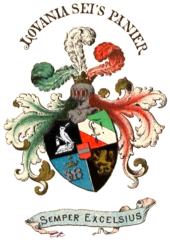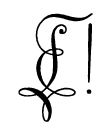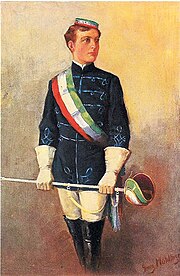K.A.V. Lovania Leuven
This article includes a list of general references, but it lacks sufficient corresponding inline citations. (June 2024) |
| K.A.V. Lovania Leuven | |
|---|---|
| K.A.V. | |
 | |
| Founded | 1896 Catholic University of Louvain |
| Type | Studentenverbindung |
| Affiliation | CV |
| Status | Active |
| Emphasis | Catholic |
| Scope | Local |
| Motto | Semper Excelsius! |
| Colors | Green, White and Red |
| Chapters | 1 |
| Zirkel |  |
| Headquarters | Leuven Belgium |
| Website | Official website |
Katholische Academische Verbindung (K.A.V.) Lovania Leuven is a Catholic academic fraternity, founded in 1896 at the Catholic University of Louvain in Leuven, Belgium. It is a German Studentenverbindung and is an affiliated member of the Cartellverband der katholischen deutschen Studentenverbindungen. Its motto is Semper Excelsius! (Der Geist lebt in uns allen!). Its official colors (Couleur) are green, white and red.
History
[edit]The Old University of Leuven, founded in 1425, was closed down during the occupation of the Low Countries in 1797 after the French revolutionaries occupied the country. After the defeat of the revolutionaries and Belgian independence from the Netherlands, the Catholic University of Louvain was founded in 1834 and was able to attract Catholic students from Germany, Austria and Switzerland who were fleeing the Kulturkampf
Helvetia Lovaniensis was the first Swiss Catholic student fraternity. It existed from 1872 to 1875. It was succeeded by an all-German Catholic student fraternity, Tungria Lovaniensis, that existed from 1877 until 1879. In 1888, a regional student fraternity was founded by students from Luxemburg. Only the last fraternity survived. Out of the ashes of the demise of the Swiss and German fraternities, a new fraternity was founded.
This event was triggered by a public allocution of Armand Thiéry, a professor in thomistic philosophy at the university, on student life at Germanic universities on January 21, 1896. During his student years in Bonn, Thiéry became a member of the prestigious student fraternity K.D.St. V. Bavaria Bonn, the oldest Catholic student fraternity in the world. This speech motivated many Germanic students to such an extent that they decided to establish a fraternity that same evening. It was called Lovania, which is Latin for Leuven (Louvain). The fraternity quickly expanded and Prof. Thiéry became honorary president. Lovania continued to blossom until the outbreak of the First World War. In 1914 the fraternity was suspended due to the commencement of fighting. At that moment the fraternity already had more than 160 active and inactive members. Numerous members died on both sides of the war.
In post war Belgium, it was impossible to re-establish a German student fraternity in 1918. Promising efforts were made during 1927 and 1928 but failed after a short time. The Second World War made a quick re-establishment even more impossible. It took until 1996 until the political situation was stable enough to reconstitute the fraternity, within the Dutch-speaking Katholieke Universiteit te Leuven. At that moment many students who belonged to fraternities were members of the Cartellverband and studied in Louvain. The idea then arose to re-establish the fraternity. The last surviving member gave his blessing to this undertaking and on April 19, 1996, the reactivation became a reality. In 1999 the friendly affiliation to the Cartellverband was formally re-established. Today the fraternity flourishes and has over 137 members, originating from Flanders, the Netherlands, Germany, Austria, Switzerland, Poland, the United Kingdom, Ireland, Australia and the United States.
Principles
[edit]
Lovania is founded upon three guiding principles:
- religio: the fraternity and all its members publicly adhere to the Roman Catholic faith
- scientia: the pursuit of an academic education for all of its members
- amicitia: a lifelong friendship between all the members of the fraternity as long as they live whilst demonstrating a strong esprit de corps
The members of Lovania do not practice academic fencing (Mensur) because it is forbidden by the Roman Catholic Church. Academic fencing is common with the more secular student fraternities in Germanic countries. Due to this restriction, Catholic students had to organize separate fraternities. Lovania only accepts men into the organization.
Symbols
[edit]
The official dress symbols, that are worn by each member, consist of a vertical green-white-red triband bordered with a golden thread and a green kepi, the historical military cap as worn during the American Civil War.
During official ceremonies and special occasions, the praesidium wears a dress uniform, a traditional Polish military uniform called a Vollwichs which consists mainly of a bekiesza.
Governence
[edit]The fraternity has a legislative (the power to make laws), executive (the power to implement laws) and judiciary (the power to judge and apply punishment when laws are broken) body. All full members make up the legislative body, which elects the executive body. The legislative body also functions as a judiciary body. In this case, it assumes the function of an honorary senate.
Notable members
[edit]- Prof. Dr. Prosper Viscount Poullet (December 9, 1871 - December 23, 1935) former prime minister of Belgium and Minister of State
- Pierre Prüm (July 9, 1886 – February 1, 1950) former prime minister of Luxemburg
- Alexander Count von Kolowrat (January 29, 1886 – December 4, 1927) founder of the Austrian movie industry
- Mon De Goeyse (October 1, 1907 - December 21, 1998), Flemish student leader, author of the clubcodex
- Prof. Dr. Albert Carnoy (November 7, 1878 - January 12, 1961), Belgian minister of internal affairs and health
- Mr. Georges Baron Holvoet (August 16, 1874 - April 23, 1964), governor of the (Belgian) province of Antwerp and chef de cabinet of the Prince-regent Charles of Belgium
- Paul Lebeau (June 29, 1908 - October 18, 1982) Flemish author
- Prof. Dr. Albert Michotte (1881 - 1965), experimental psychologist
- Prof. Dr. Dr. Dr. Francis Aveling Ph.D. (1875-1941)
- Etienne Baron Orban de Xivry (February 18, 1885 - July 23, 1953), Belgian senator
- Jef van den Eynde (December 21, 1879 - April 12, 1929), Flemish student leader
- Mr. Charles Baron Woeste (February 26, 1837 - April 5, 1922), Belgian Minister of State
References
[edit]- Wehr, Florian, Geschichte des CV, 2. Auflage, Berlin, 1900
- Thiéry Armand, Chansonnier des étudiants Belges publié par la Studentenverbindung Lovania, Breitkopf et Härtel, Brüssel, 1901
- Lovania - 10 Jahre deutschsprechenden Studententums in Löwen 1895–1905, Leuven, 1906
- 15. Vereinsjahr - Academische Studenten Verbindung Lovania 1895–1910, Leuven, 1910
- Wils J., Les étudiants des régions comprises dans la Nation germanique de l'Université de Louvain, 2, Leuven, 1910
- Katholische Academische Studentenverbindung Lovania - Jahresbericht 1910–1912, Druck. F. Giele, Leuven, 1912
- Wolf Otto, Geschichte der katholischen deutschen Studentenverbindung Bavaria 1844–1914, Bonn, 1914
- Contzen Hans, Lovania - Zwanzig Jahre deutschsprechenden Studententums in Belgien, Studentenbibliothek 24), Mönchengladbach, 1916
- Schulze, Friedrich, Ssymank, Paul, Das deutsche Studententum von den ältesten Zeiten bis zur Gegenwart, 1932, Verlag für Hochschulkunde, München (Nachdruck), ISBN 3-923621-90-6
- Doergé Robert., 75 Jahre katholische deutsche Studentenverbindung Franconia an der Rheinisch-Westfälischen technischen Hochschule Aachen 1898–1973, Aachen, 1974
- de Bruyne, Arthur (Ed.), Bijdragen tot de geschiedenis van een generatie - Een liber amicorum voor mr. Willem Melis, Rinda, 1977, Kemzeke
- de Goeyse Mon., O Vrij-Studentenheerlijkheid, Leuvense Universitaire Pers, Leuven, 1987, ISBN 90-6186-251-5
- Schieweck-Mauk S., Lexikon der CV- und ÖCV-Verbindungen, Gemeinschaft für deutsche Studentengeschichte, Würzburg, 1997, ISBN 3-89498-040-0
- Bodman, Ernst-Michael, 100 Jahre K.D.St.-V. Franconia Aachen, Aachen, 1999
- Uytterhoeven R., Nostalgia Lovaniensis, Universitaire Pers Leuven, Leuven, 2000, ISBN 90-5867-065-1
- Vos Louis, Weets Wilfried, (Ed.), Vlaamse vaandels, rode petten, Uitgeverij Pelckmans, Kapellen, 2002, ISBN 90-289-3204-6
- Hartmann, Gerhard, Für Gott und Vaterland - Geschichte und Wirken des CV in Österreich, Lahn-Verlag, Wien, 2006, ISBN 3-7840-3362-8
- Huys, Jan, Van de Weyer Stefan, De studentikoze erfenis van Rodenbach, Acco Drukkerij, Leuven, 2006
External links
[edit]- Education in Leuven
- Cartellverband
- Student organizations established in 1896
- Catholic University of Leuven (1834–1968)
- Christian fraternities and sororities in Belgium
- Catholic universities and colleges in Belgium
- Student religious organisations in Belgium
- Student societies in Belgium
- 1896 establishments in Belgium
